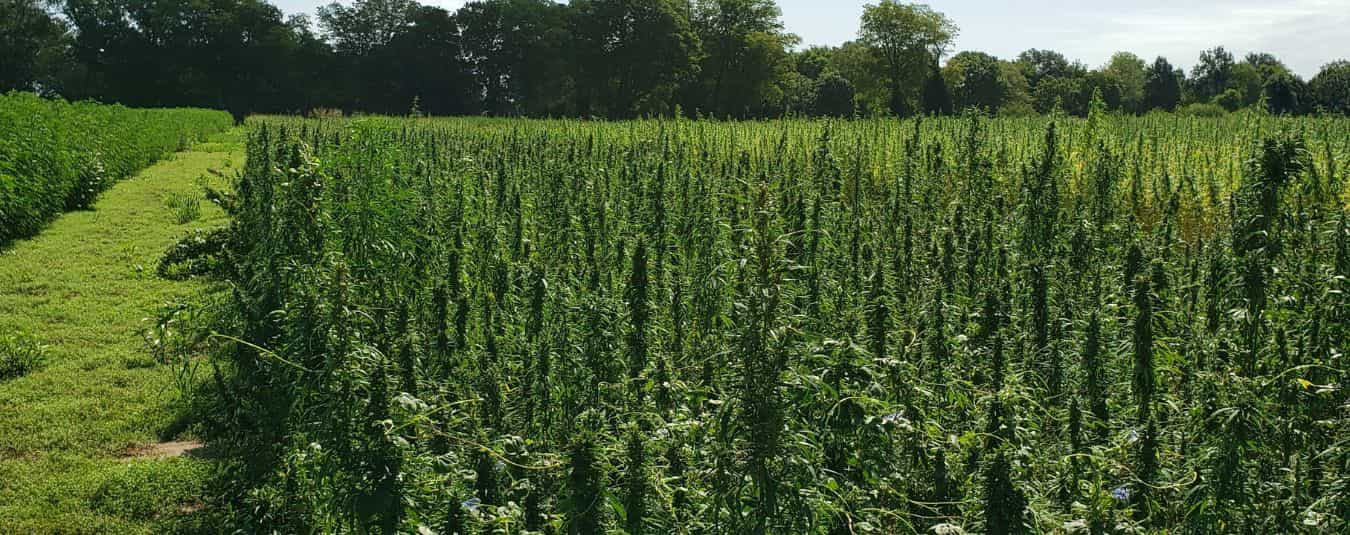Climate Smart Hemp Project

USDA-NRCS- Climate Smart Commodities project “Scaling up the industrial hemp supply chain as carbon negative feedstock for fuel and fiber.”
Our Partners
Donald Danforth Plant Science Research Center
Lincoln University of Missouri
Midwest Natural Fiber LLC
Missouri Farmers Union
National Association for the Advancement of the Colored People
Oklahoma State University
St. Louis University
Project Contractors
Benchmark Design, DTE Materials, GIC group, Hempwood, New West Genetics, Prairie View A & M University, University of Missouri, REA Resource Recovery Systems, Renaissance Fiber, Rockwater LLC.
Other Partners
MO Department of Agriculture, NRCS MO, National Hemp Association, USDA-FSA MO
Background
Hemp is an ideal annual crop for carbon negative supply chains for food, feed, fiber, and fuel. Hemp has lower N requirements and create deeper, more massive root systems that can make annual biomass feedstock production C. Hemp has another key trait for C sequestration, population density, where > 500k individuals per hectare leads to more root systems and greater C input. In addition to the existing grain and fiber crop’s introduction of enhanced roots hemp genetics will improve soil function, soil health and agroecosystem sustainability and resilience and will contribute to other environment benefits (e.g., water quality).
Active atmospheric CO2 removal strategies are needed to supplement aggressive fossil fuel reductions to attain net CO2 reductions and avoid the most damaging climate change outcomes. Of potential technologies for CO2 removal, using annual cropping systems for soil C sequestration is the least expensive and most environmentally friendly, with near-term technological readiness to go to scale. Adoption of hemp crops with enhanced root phenotypes in annual cover crop and conservation cropping systems is one of the most promising and scalable technologies. Hemp puts 3,200kg of roots per hectare per year in the soil or 1,280 kg of Carbon.
Compelling need and Approach: Hemp provide an unparalleled opportunity towards solutions for lowering the carbon intensity of fuel and fiber production. Opportunities for feed and food are just around the corner. The compelling need and approach for this project is based on the capacity of industrial hemp as a cover crop and/or as conservation crop rotation to fix and sequester carbon and both low carbon fuel production and sustainable low carbon building materials on ground that is not part of the food supply chain. So, hemp is not to replace the existing soybean and maize production which is having major roles in global food and feed supply.
Hemp can be grown on existing agricultural land and can be included as part of a farm's crop rotation with positive effects on overall yields of follow-on crops. For example, approximately 20M acres of hard red winter wheat (HRWW) is grown utilizing a fallow-wheat rotation. Because of this cropping system, every year ~20M acres of productive farmland are not utilized completely. In fact, Hemp produced on fallow wheat ground can replace the lost petroleum imported from abroad and provide a negative CO2 carbon intensity score. Proliferate and deeper root system architecture, and significant water and nutrient use efficiency, of this crop combined with enhanced atmospheric carbon removal and carbon storage in the ground through superior genetics (e.g., frost tolerant double yield) developed by the team endorse industrial hemp as a net negative GHG commodity.
Agricultural Practices
The climate smart agricultural practices implemented through this project will meet the NRCS practice standards such as Cover Crop – Conservation Practice Standard (CPS) 340. Cover Crop (340) is also applied with practices such as Conservation Crop Rotation (328).
Farmers Participation
Active participation of farmers including the minority, small, underrepresented farmers from the project geographical locations in the state of Missouri will strengthen the plan to pilot climate smart agricultural practices.
Overall, the public-private partnership including the hemp fuel and fiber processing and industrial hemp supply chain help build markets and strengthen U.S. rural agricultural communities.
Project Director
Dr. Babu Valliyodan, Chair
Asst. Professor of Molecular Biology & Genomics
Lincoln University Hemp Institute
Dept. of Agriculture and Environmental Sciences
SARF 106, 1220 Chestnut Street
Jefferson City, MO 65101
Phone: (573) 681-5533 Labe: (573)-681-5452
Email: ValliyodanB@LincolnU.edu
